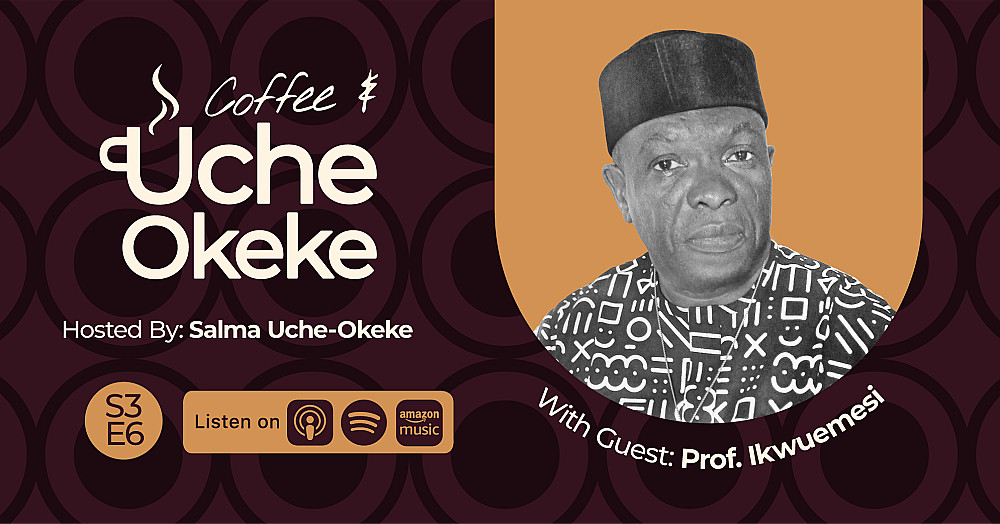Rediscovering Igbo Art and Ethno-Aesthetics Through Uli | Prof. Ikwuemesi | CUO S3E6

Published 04 August 2025 in Podcast
Artfundi Editorial
Key Insights:
- Prof. Ikwuemesi blends traditional Igbo art with modern styles.
- He works to preserve the Igbo art form, Uli, through community crafts.
- His research compares Igbo and Japanese Ainu cultures.
- Christianity and modernity have shifted Igbo art towards abstraction.
- African artists struggle with limited government support and infrastructure.
- Preserving artistic legacies like Uche Okeke’s inspires future generations.
In the latest "Coffee and Uche Okeke" podcast, Salma Uche-Okeke spoke with Professor Chuu Krydz Ikwuemesi about his significant contributions as an artist, critic, cultural entrepreneur, and scholar.
Prof. Ikwuemesi strongly supports "Natural Synthesis", a concept introduced by Uche Okeke. This involves combining traditional African art styles with global techniques, allowing artists to maintain their cultural identity while engaging modern audiences.
A major part of his research is "Uli", an Igbo art style characterised by detailed abstract designs traditionally created by women. Prof. Ikwuemesi is committed to preserving Uli by collaborating with local artisans. He encourages these artists to incorporate traditional Uli patterns into everyday objects like textiles and homewares, blending tradition with contemporary uses.
Prof. Ikwuemesi also studies ethno-aesthetics, comparing Igbo culture with Japanese Ainu culture. His research reveals common themes between the two cultures, including similar rituals and visual styles, providing a deeper understanding of traditional artistic practices worldwide.
The conversation also highlighted how Christianity and modern life have reshaped Igbo art. Instead of realistic images, Igbo artists now often use abstract forms to capture spiritual and deeper meanings.
Prof. Ikwuemesi highlighted significant challenges facing African artists, including a lack of government support and inadequate infrastructure. These issues prevent Nigerian artists from achieving broader recognition and limit the growth of a strong art market in Africa.
He also emphasised the importance of preserving legacies like those of Uche Okeke. Documenting and promoting these legacies ensures that future artists understand and appreciate their cultural roots, inspiring them to continue and expand upon traditional art forms.
Overall, Prof. Ikwuemesi’s discussion with Salma Uche-Okeke sheds light on the importance of blending traditional art with modern practices. It also highlights the challenges artists face and calls for increased support to ensure the growth and preservation of African art traditions.
References:
